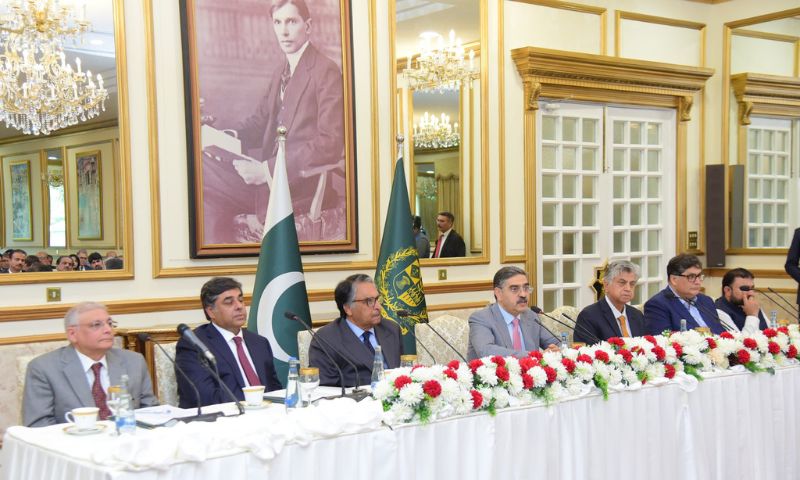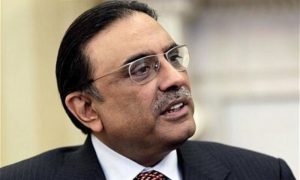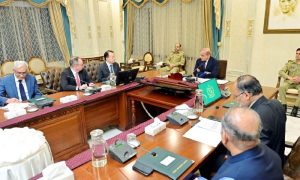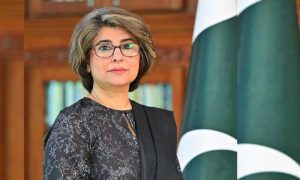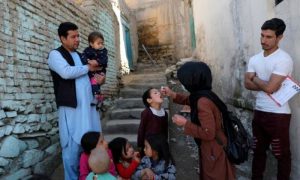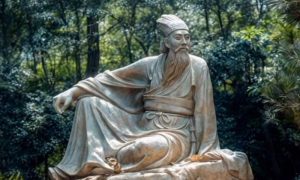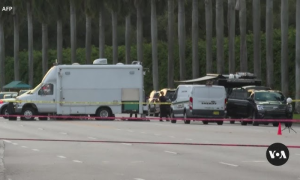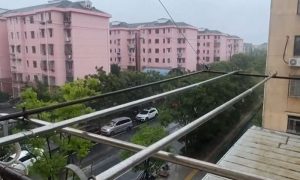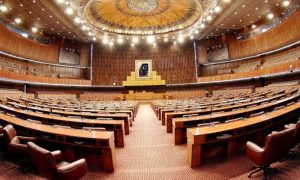ISLAMABAD: Pakistan’s Prime Minister Anwaar-ul-Haq Kakar said on Monday that the recently signed 20 Memorandums of Understanding (MoUs) during his visit to China are expected to boost Pakistan’s economic growth significantly.
Addressing a press conference, the Prime Minister said that he is optimistic about the Chinese investment as a result of these MoUs.
The Prime Minister, leading a high-level delegation, visited China from October 16 to 20, primarily to participate in the Belt and Road Forum. During his visit, he engaged in bilateral meetings with Chinese President Xi Jinping, Premier Li Qiang, and the leadership of the Communist Party of China.
The 20 agreements and MoUs signed during the visit covered a wide range of areas, including cooperation on the Belt and Road Initiative (BRI), infrastructure, mining, industry, green and low-carbon development, health, space cooperation, digital economy, development cooperation, and the export of agricultural products to China.
“The signing of these 20 MoUs is very encouraging. It’s been a while since we’ve seen such a large number of MoUs signed with China. We have brought three guiding principles of coordination, cooperation, and consultation with us,” he noted.
The Prime Minister mentioned that these MoUs are still in the planning stage, and a thorough assessment of their potential, market needs, and impact on exports will precede their implementation. He added that a dedicated office at the Prime Minister’s Office will oversee the follow-up on these bilateral agreements with China.
Multiple Agreements in Key CPEC Sectors to Strengthen Bilateral Trade
Addressing his interactions with Chinese business leaders, the Prime Minister mentioned that under the second phase of the China-Pakistan Economic Corridor (CPEC), Chinese private businesses are expected to invest in various sectors in Pakistan, including agriculture and mining.
He also highlighted the positive reception of Pakistani leadership’s “constructive” engagement with their Chinese counterparts by the Chinese people, media, and think tanks. Emphasizing the importance of consistency in relations with China, he expressed hope that the forthcoming government would continue the momentum as any deviation from commitments could jeopardize the country’s dignity.
The Prime Minister commended Chinese President Xi Jinping’s address at the Forum, which he considered an answer to the challenges facing China, the region, and the world. He emphasized that the connectivity established under the Belt and Road Initiative would not only bring regions closer but also create opportunities for people.
During the visit, the Prime Minister also met with the Presidents of Russia, Sri Lanka, and Kenya. During the meeting with the Kenyan President, the issue of the investigation into the killing of Pakistani news anchor Arshad Sharif was discussed. The Kenyan President assured cooperation with Pakistani authorities on this matter.
Regarding the situation in Gaza, Prime Minister Kakar informed the media that humanitarian aid had arrived in Egypt for distribution to the suffering Palestinian people. However, he emphasized that the primary focus was on ending hostilities, and Pakistan was actively collaborating to facilitate this goal. Pakistan had also co-hosted an Organisation of Islamic Cooperation (OIC) ministerial meeting in Jeddah on the Gaza issue.
Regarding the upcoming elections, the Prime Minister stated that the final voting date would be announced soon, and the caretaker government was making every effort to facilitate the electoral process. He noted that no major political party was excluded from the political process unless legally barred.
Regarding the return of Pakistan Muslim League-Nawaz supremo Nawaz Sharif, Prime Minister Kakar considered him a political reality and encouraged his adversaries to engage with him in politics.
On the economic front, the Prime Minister highlighted that for the first time in the country’s history, the value of the dollar had significantly reduced. He indicated that he would convene a follow-up meeting with provincial chief secretaries later in the day to ensure the trickle-down effect on the common man, impacting commodity prices and transport fares.
In response to another question, the Prime Minister pointed out that the existing business model of print media was flawed and likely to collapse. He suggested that print media entities should revamp their business approaches to thrive in the private sector rather than relying on state support.
Caretaker Prime Minister Anwaar-ul-Haq Kakar addressed a Press Conference today in Islamabad. pic.twitter.com/gT0OPBNX4J
— Government of Pakistan (@GovtofPakistan) October 23, 2023









